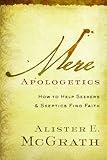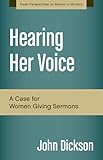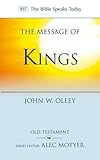This year has been an extremely busy one for me. My main focus at church has been on running a year-long leadership training course, and I’ve also been creating a lot of online technical training content. In fact, the opportunity to do this has been one of our family’s biggest answers to prayer this year, as it has provided the additional finance we needed to send our son to the King’s School, a local Christian school.
So there haven’t been as many book reviews as normal on the site here, but I haven’t stopped reading. Here’s some brief reviews of what I’ve been reading, along with a few selected quotes…
Total Truth (Nancy Pearcy)
 I’d heard a lot of good things about this book, and read it as part of my preparation for a talk on worldview. It’s a fairly substantial volume, and one of the main focuses of the book is to demolish the “fact-value” dichotomy. This is where Christians succumb to the idea that their beliefs are just “private beliefs”, and to be kept out of the public arena in which everything is based on “fact”, with God not allowed into the debate.
I’d heard a lot of good things about this book, and read it as part of my preparation for a talk on worldview. It’s a fairly substantial volume, and one of the main focuses of the book is to demolish the “fact-value” dichotomy. This is where Christians succumb to the idea that their beliefs are just “private beliefs”, and to be kept out of the public arena in which everything is based on “fact”, with God not allowed into the debate.
The mistake lies in thinking there is such a thing as theories that are unbiased or neutral, unaffected by any religious and philosophical assumptions.
She explores this in a number of different ways, and I found particularly interesting the sections on the ways Christian thinking has been shaped by culture through history.
One of the biggest areas in which the “fact-value” battle is fought is in the Creation vs Evolution debate. A Christian worldview starts with a God who creates, and a Darwinian worldview starts with matter. This will doubtless be one of the most contentious parts of the book, and she argues for an Intelligent Design position. What I think is undeniable is the fact that evolution itself has become inextricably intertwined in popular thinking with a materialistic worldview that excludes God.
She repeatedly challenges Christians to stop thinking that the Bible has nothing to say about how we conduct our businesses (the “sacred/secular” divide). She highlights how even many Christian organisations have adopted business practices that run completely counter to the values of the Bible.
We must begin by being utterly convinced that there is a biblical perspective on everything—not just on spiritual matters
One of the most interesting chapters is entitled “How women started the culture war”, and contains fascinating information about how women and men’s roles developed, as men’s work increasingly took them away from the family.
Overall, this is an excellent exploration of a subject that has been badly neglected by many Christians. Lots of food for thought in here.
The best way to drive out a bad worldview is by offering a good one, and Christians need to move beyond criticizing culture to creating culture. That is the task God originally created humans to do, and in the process of sanctification we are meant to recover that task. Whether we work with our brains or with our hands, whether we are analytical or artistic, whether we work with people or with things, in every calling we are culture-creators, offering up our work as service to God.
We may do a great job of arguing that Christianity is total truth, but others will not find our message persuasive unless we give a visible demonstration of that truth in action. Outsiders must be able to see for themselves, in the day-to-day pattern of our lives, that we do not treat Christianity as just a private retreat, a comfort blanket, a castle of fairy-tale beliefs that merely make us feel better.
We can go so far as to say that if Christians win their battles by worldly methods, then they have really lost.
The Hole in our Holiness (Kevin DeYoung)
 Kevin DeYoung is an author I’ve been meaning to read for some time, and I picked this one up when Amazon Kindle were doing a special offer. He has a good writing style, humble and humorous, and he is careful to back up everything he says with plenty of scriptural references. In this short book on holiness puts the Bible’s call to holiness into the context of the gospel of grace, and in my opinion does a great job of avoiding the pitfalls of legalism on one side of the road, and antinomianism on the other.
Kevin DeYoung is an author I’ve been meaning to read for some time, and I picked this one up when Amazon Kindle were doing a special offer. He has a good writing style, humble and humorous, and he is careful to back up everything he says with plenty of scriptural references. In this short book on holiness puts the Bible’s call to holiness into the context of the gospel of grace, and in my opinion does a great job of avoiding the pitfalls of legalism on one side of the road, and antinomianism on the other.
“When we sin, our union with Christ is not in jeopardy. But our communion is.”
“worldliness is whatever makes sin look normal and righteousness look strange”
God doesn’t say, “Relax, you were born this way.” But he does say, “Good news, you were reborn another way.”
Grasping God’s Word J. Scott Duvall and J. Daniel Hays
 This is essentially an introductory textbook on hermeneutics, and it does a good job covering all the main bases, and is well-written. I did have a couple of criticisms though. First, the general assumption is that the main thing we are trying to do is extract some timeless principles. I agree that those can be found in the Bible and good hermeneutics will help us to correctly identify them. But this approach ends up downplaying the significance of the metanarrative of Scripture, and views it almost as an inconvenience that we were given these principles in story form.
This is essentially an introductory textbook on hermeneutics, and it does a good job covering all the main bases, and is well-written. I did have a couple of criticisms though. First, the general assumption is that the main thing we are trying to do is extract some timeless principles. I agree that those can be found in the Bible and good hermeneutics will help us to correctly identify them. But this approach ends up downplaying the significance of the metanarrative of Scripture, and views it almost as an inconvenience that we were given these principles in story form.
Second, I would have preferred a more Christological approach to the Old Testament. Often evangelical hermeneutics can set up so many “rules” that whenever the New Testament authors see Christ in the Old Testament, they have to be granted a special permit to “break” the usual rules. But what if they are modelling how hermeneutics ought to be done? What if we are really supposed to see Christ in all the Scriptures?
I didn’t quite finish the book, so maybe these two concerns are addressed in more detail before the end. But those two concerns aside, this is actually a very helpful and well-presented guide to interpreting the Bible.
Readers must be prepared to have their values and beliefs called into question by the text. If they are not, they will grasp the Bible in the wrong way, twisting its words so that they conform to what we want them to say.
We do not create meaning out of a text; rather, we seek to find the meaning that is already there.




 This short book seems to be doing the rounds within TNOCFKANF (the network of churches formerly known as newfrontiers). Newfrontiers churches typically hold to a “complementarian” position, believing that Scripture teaches that only men are appointed as elders, whilst all other ministries remain open to women. By contrast “egalitarians” (and there are many I know of within newfrontiers churches) disagree that any role should be restricted to men. But leaving aside the question of “office”, should a “complementarian” church, one that holds to male eldership, allow women to preach? The traditional answer has been no, based largely on 1 Tim 2:12, but an increasing number of complementarians are questioning that interpretation.
This short book seems to be doing the rounds within TNOCFKANF (the network of churches formerly known as newfrontiers). Newfrontiers churches typically hold to a “complementarian” position, believing that Scripture teaches that only men are appointed as elders, whilst all other ministries remain open to women. By contrast “egalitarians” (and there are many I know of within newfrontiers churches) disagree that any role should be restricted to men. But leaving aside the question of “office”, should a “complementarian” church, one that holds to male eldership, allow women to preach? The traditional answer has been no, based largely on 1 Tim 2:12, but an increasing number of complementarians are questioning that interpretation.



